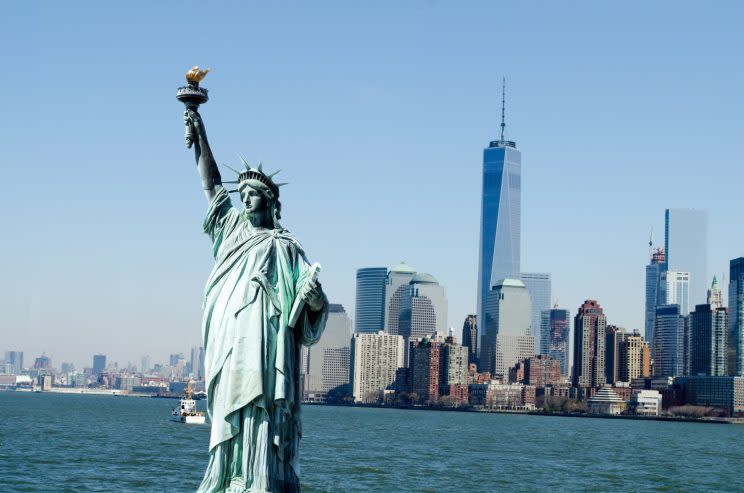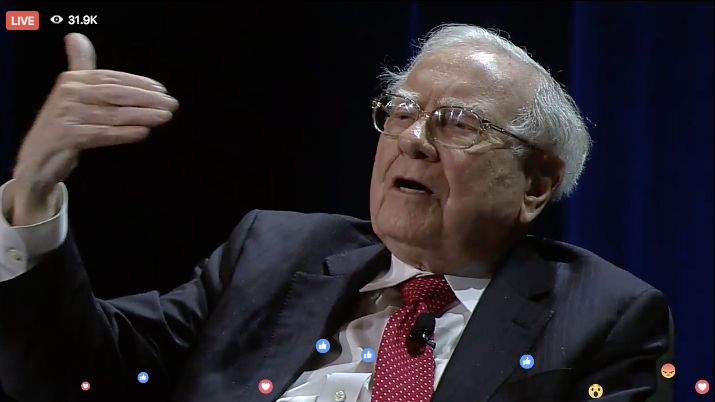Why the market might not like Trump's immigration ban
President Donald Trump signed an executive order banning citizens from seven Muslim-majority countries from entering the U.S.
It was a move widely criticized by business leaders and policymakers around the world.
Financial market experts and investors had broadly embraced Trump and his promises to cut tax rates and roll back regulation. But some fear that the haphazard nature of Trump’s order could do more bad than good.

“[T]his is an extremely blunt approach to an important issue,” Allianz’s Mohamed El-Erian said in a piece for Bloomberg View.
“As designed and implemented, there are genuine doubts about the order’s effectiveness in meeting its stated objective of preventing terrorism,” he explained. “It also risks a lot of collateral damage and unintended consequences that ultimately could prove counterproductive and harmful to national security, the economy and America’s moral authority, values and standing in the world.”
In the wake of Trump’s election, stocks surged with major market indices setting record highs. Just last week, the Dow Jones Industrial Average (DJIA) breached 20,000 for the first time.
With stock prices where they are today, Cumberland Advisors’ David Kotok warns that the market “is ripe for a correction and is extended in valuation metrics.”
“For these current market prices to be justified, the Trump agenda must unfold perfectly,” Kotok said. “But the reverse is underway, and fragmented policy combined with obfuscation is now a growing detriment to growth acceleration,” he said.
One thing that investors hate is uncertainty. All things being equal, elevated uncertainty means lower stock prices.
Impairing the flow of human capital and knowledge transfers
Beyond the bluntness of the executive order and the confusion that it has caused, there are some bigger structural issues to be concerned about.
“Trade barriers and tariffs in the goods market are unhealthy for economic growth,” Kotok said. “Trump’s order extends that barrier policy to services and to skills that are in the human capital realm, not the physical or manufacturing capital realm.”
In particular, Kotok warned that Trump will impede the productive transfer of knowledge. This is something that billionaire Warren Buffett addressed on Friday during a talk at Columbia University.
“We are sitting here, in part, because of two Jewish immigrants who in 1939 in August signed the most important letter perhaps in the history of the United States,” Buffett said. He was referring to a letter that was sent to President Franklin Delano Roosevelt by Albert Einstein and Leo Szilard, physicists who warned that Germany might develop an atomic bomb. It ultimately led to the Manhattan Project.

Kotok warned of a direct cost to American students.
“Our universities sell courses and academic degrees, and foreigners come here and buy them and mostly pay cash in US dollars,” he said. “Billions are transferred each year. University education for Americans is subsidized by foreigners who occupy seats in classrooms and do so as paying customers. Look at any of our schools for evidence. Ask any dean or provost what his school’s financial structure would look like if there were no foreign students enrolled.”
“No good can come from this bludgeoning approach to policy making,” Kotok said. “I worry—for our country, for our financial markets, for our schools and for my grandchildren.”
Even authoritarian governments oversaw bull markets
One thing that is certain is that it’s difficult to predict the short term direction of the markets regardless of the style of leadership at the highest levels of government. Former Treasury Secretary Larry Summers argued this in an op-ed for the Washington Post.
“[N]ew governments with authoritarian tendencies have historically brought about bull markets even before they led to disaster,” he wrote. “Governments with much stronger authoritarian tendencies than anything plausible in the U.S. — like those of Hitler or Mussolini — nonetheless saw strong markets in their early years.”
Summers further took issue with the argument that Trump’s policy promises alone were ever capable of pushing the stock market higher.
“[T]he fundamental basis for a big market rally is very unclear,” he wrote. “If ‘pro-business policies’ were, key over time it would not be the case that Democratic administrations have consistently seen stronger markets than Republican ones over the last 70 years. Recall also that nearly half of S&P 500 revenue is earned abroad and will not be enhanced by new U.S. domestic policies but may be hurt by new nationalist measures. It is far from clear that corporate tax reform on the scale envisioned by the new administration will pass this year and even the hallmark 1986 Act tax reform act had only modest stock market impacts. The impact of regulatory changes will be felt only in some sectors and may be offset by new populist measures such as restrictions on pharmaceutical pricing.”
It remains to be seen exactly how the market will price all of this in. We do know, however, that the Trump administration was happy to take credit for Dow 20,000. Would they also assume responsibility of a sell-off?
–
Sam Ro is managing editor at Yahoo Finance.
Read more: